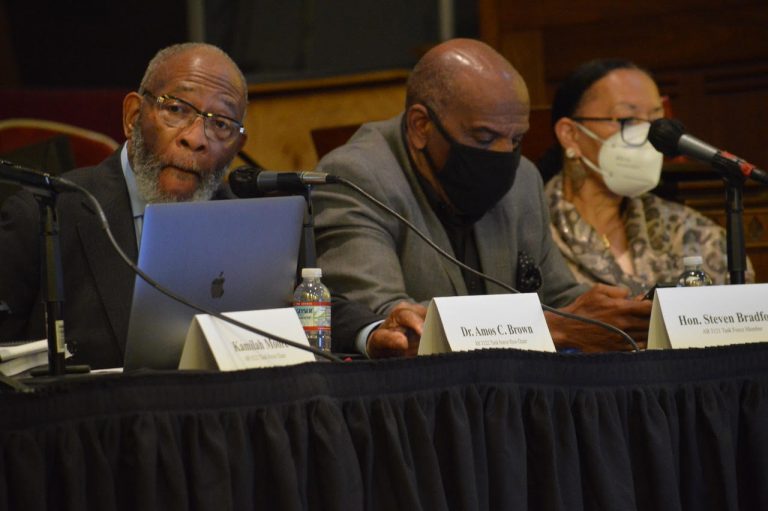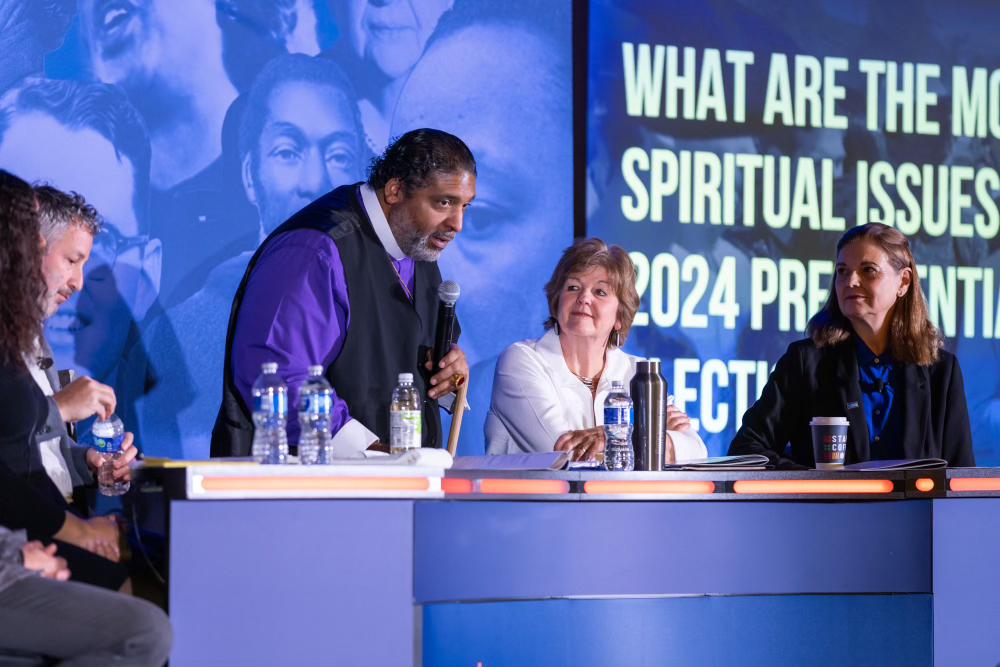Hundreds of Backup Batteries, Hotel and Food Vouchers Distributed This Year
SAN FRANCISCO, Calif. — In partnership with local community organizations, Pacific Gas and Electric Company (PG&E) continues to support customers who depend on power for medical equipment and independent living needs with access to critical resources during Public Safety Power Shutoff (PSPS) events this year. That support includes backup batteries as well as accessible transportation, hotel accommodations, and food stipends for customers impacted when a forecast of gusty winds and dry conditions combined with a heightened fire risk prompts PG&E to turn off power for public safety.
In April, PG&E and the California Foundation for Independent Living Centers (CFILC) launched the Disability Disaster Access and Resources Program, a joint effort to aid people with disabilities, medical and independent living needs, and older adults. In August, PG&E’s Portable Battery Program, which provides no-cost backup portable batteries for income-qualified[1] customers enrolled in PG&E’s Medical Baseline program and living in high fire-threat districts[2], was launched.
Through the end of October, these two programs have provided emergency preparedness outreach and energy assessments to thousands of customers, distributed more than 2,500 backup batteries, coordinated hotel stays for more than 400 customers, and provided more than 525 food stipends to individuals with disabilities and older adults who are more greatly impacted when the power goes out. PG&E began working with the CFILC during the October 2019 PSPS events, when approximately 200 batteries, more than 200 hotel stays, and more than 100 food stipends were provided to individuals affected by the events.
“These programs are administered by dozens of local organizations who understand the specific needs of vulnerable customers in the communities that they serve and that PG&E serves. We don’t take the decision to proactively turn off power for safety lightly, and knowing these local organizations are ready to provide resources to minimize impact to disabled or aging customers is important to all of our employees,” said Laurie Giammona, PG&E Senior Vice President and Chief Customer Officer.
Coordination of resources takes time, so customers are encouraged to engage with their local organizations and formulate a plan long before a safety shutoff is imminent. Applications for the Disability Disaster Access and Resources program are available online. Customers can find locations of participating Independent Living Centers administering the program by visiting www.pge.com/disabilityandaging. Hours of operation may be impacted due to the COVID-19 pandemic.
The Portable Battery Program is administered by the following five Low-Income Home Energy Assistance Program (LIHEAP) providers: Butte Community Action Agency, Central Coast Energy Services, Community Resource Project, North Coast Energy Services, and Redwood Community Action Agency. Richard Heath & Associates, a third-party energy program implementer focused on underserved communities, is also working with PG&E on the program. These PG&E partner organizations have been actively reaching out directly via mail and phone to customers who meet the criteria to qualify for the Portable Battery Program. Customers do not need to apply for the program.
PG&E offers additional support for customers affected by a PSPS event who don’t qualify for the Disability Disaster Access and Resources and Portable Battery programs, including:
- Customers can apply for CARE online at pge.com/CARE. Applying is easy and only takes about five minutes. Qualifying customers will begin receiving the CARE program discount within their next billing cycle. Qualified households can save 20 percent or more each month on their energy bill.
- Customers who experience food loss due to a PSPS event can visit participating food banks to obtain a box of food that will feed a family of 4 for a week. Food replacement is provided for three days following power being restored.
- Customers on the Medical Baseline program will not be asked to re-certify through a doctor or other eligible medical professionals for up to one year. Residential customers who have special energy needs due to certain qualifying medical conditions can receive a lower rate on monthly energy bills.
- Customers who already participate in the Meals on Wheels program and live in a county impacted by a PSPS may be given an additional meal per day for each day of the PSPS event.
For additional support and resources log onto pge.com/psps.
About PG&E
Pacific Gas and Electric Company, a subsidiary of PG&E Corporation (NYSE:PCG), is one of the largest combined natural gas and electric energy companies in the United States. Based in San Francisco, with more than 23,000 employees, the company delivers some of the nation’s cleanest energy to nearly 16 million people in Northern and Central California. For more information, visit pge.com and pge.com/news.
_____________________________________________________
[1] Income-qualification requires that customers are enrolled in or eligible for California Alternate Rates for Energy (CARE) or Family Electric Rate Assistance (FERA).
[2] Eligible customers must live in Tiers 2 or 3 High Fire Threat Districts defined by the CPUC fire map




